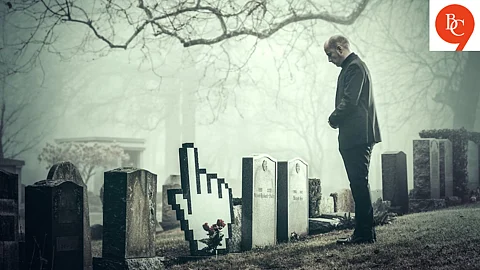What Happens to Your Digital Life After You Die?
But what really happens to your digital life after you die?
Who owns your data?
Can someone access your phone, delete your embarrassing teenage tweets, or retrieve your digital assets?
Welcome to the evolving world of digital death—a conversation we all need to have, but rarely do.
The Concept of Digital Legacy
Your digital legacy includes everything you leave behind in the digital space:
Social media accounts (Instagram, Facebook, Twitter)
Emails, cloud storage, and documents
Streaming or subscription services
Cryptocurrency, online banking or trading accounts
Photos, videos, blog posts, or YouTube content
Chat histories and voice notes
Even your digital avatar or AI-generated likeness in the future
Who Has the Right to Your Data After Death?
That depends on where you live and what platforms you use.
Most online platforms don’t automatically give access to your data unless:
You’ve given explicit consent (e.g., named a legacy contact)
There's a legal order or digital will
You're in a region with data access laws after death
What Can You Do to Plan Your Digital Afterlife?
Just like making a will, it’s wise to organize your digital assets. Here’s how:
1. Create a Digital Will
Document your digital assets and state who should manage or access them. This can be done informally or through a legal digital will.
2. Use Legacy Tools
Enable legacy contact features on platforms like Facebook, Google, and Apple. These can allow trusted people to access or shut down your accounts.
3. Keep Passwords in a Safe Vault
Use a password manager that can pass on credentials in case of death. Apps like LastPass, Dashlane, or 1Password offer emergency access features.
4. Decide What You Want Deleted or Preserved
Do you want your Instagram to be a digital memorial or wiped clean? Do you want your Substack newsletters archived? Decide in advance and leave written instructions.
What About Digital Assets Like Crypto?
With the rise of cryptocurrencies, NFTs, and online investments, the stakes are higher than ever. If you don’t share wallet credentials or private keys before you die, those digital assets may be lost forever. Blockchain platforms don’t work like banks—there’s no “forgot password” option.
So, it’s critical to:
Document access keys in a secure place
Leave detailed instructions in a digital will
Share access only with people you absolutely trust
The Rise of Posthumous Technology
As we move into an AI-driven era, the lines between life and digital presence are blurring. New trends include:
AI chatbots trained on a person’s texts and voice recordings (yes, Black Mirror-style)
Virtual memorials in the metaverse
Hologram messages or video letters recorded before death
Tools that send scheduled emails or messages long after you’re gone
Your digital life deserves the same closure, control, and compassion as your physical one.
In a world where our identities are more online than ever, death doesn’t delete data. It lingers, floats, and sometimes haunts. The key is intentional planning—for your sake and for the emotional well-being of those you leave behind.


